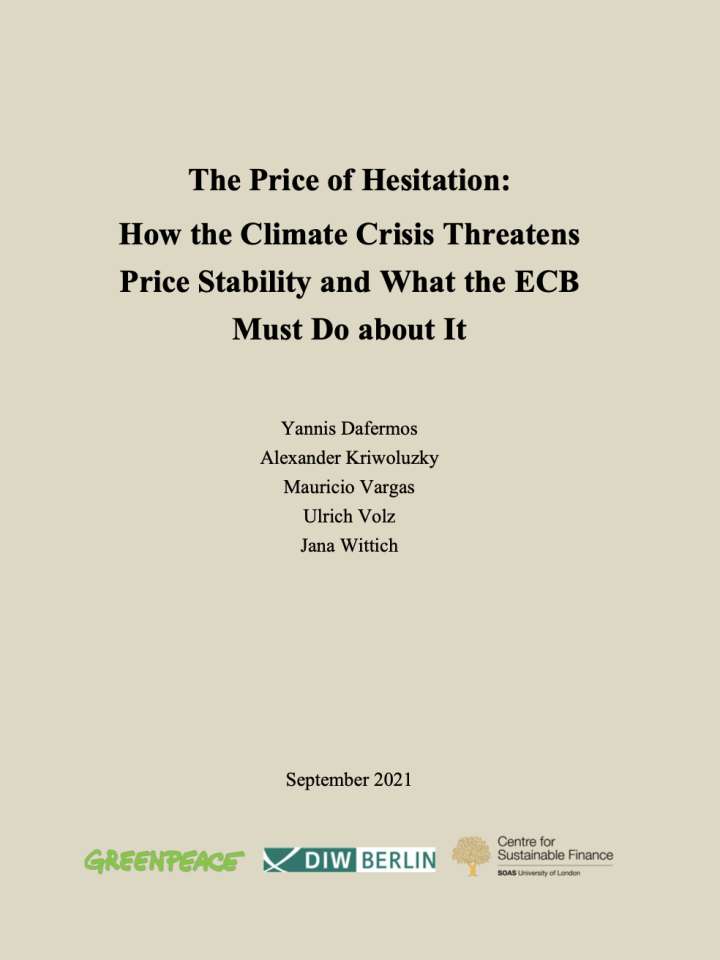The price of hesitation: How the climate crisis threatens price stability and what the ECB must do about it
This report presents empirical evidence of the impact of natural disasters on inflation in the eurozone, highlighting the challenges facing the ECB to achieve price stability in the era of the climate crisis. With an escalation of the climate crisis, the frequency and intensity of climate-related hazards will increase in the eurozone. If past data shows that natural events have already an impact on inflation, this effect can only become stronger as global warming increases, with important ramifications for European Central Bank (ECB) policies and operations. The ability of the ECB to control inflation may be significantly undermined if the world passes the 1.5 or 2 degrees threshold. Therefore, actions that prevent an increase in global warming have an important role to play in allowing the ECB to achieve its primary objective in the future.
The results show that natural disasters lead to increases in headline and core inflation, with price increases being higher for food and beverages. The report also shows that there are significant differences between eurozone countries in the way that inflation is affected by natural disasters. The report sets out how the ECB could develop an ambitious agenda that would help it deliver on its primary and secondary mandates. Concretely, it recommend that the ECB and the European System of Central Banks (ESCB) should:
- introduce more explicitly climate performance criteria into their monetary policy tools;
- align prudential regulation with climate neutrality;
- abandon market neutrality as the key principle that guides the design of monetary policy;
- incorporate double materiality and macrofinancial feedback loops in macroeconomic modelling and scenario analysis; and
- use more ambitious climate-related criteria in their portfolio management.
Explore further
